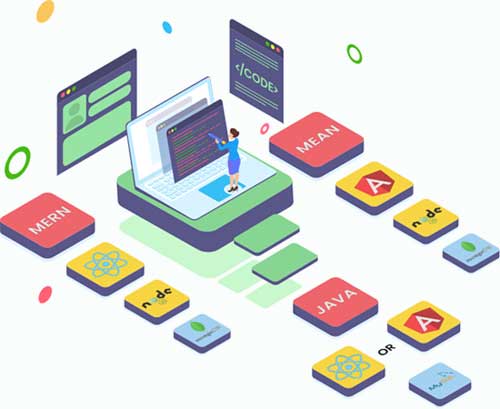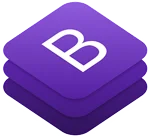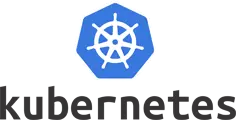Why Full Stack Masters Program ?
Anual Average Salaries

Managers said
hiring Fullstack engineers
was top priority
Anual Average Salaries

Managers said
hiring Fullstack engineers
was top priority
Anual Average Salaries

Managers said
hiring Fullstack engineers
was top priority
Anual Average Salaries

Managers said
hiring Fullstack engineers
was top priority
Anual Average Salaries

Managers said
hiring Fullstack engineers
was top priority
Anual Average Salaries

Managers said
hiring Fullstack engineers
was top priority
Our Alumni Work at Top Companies
Explore the Digital Edify way
Learn
Learn from Curated Curriculums developed by Industry Experts
Full stack Masters With Cloud & DevOps Curriculum
Topics
1. What is an Application?
Overview of applications and their significance.
2. Types of Applications
Classification and examples of various application types.
3. Fundamentals of Web Applications
Basic concepts and components of web applications.
4. Web Application Architecture
Structure and design patterns in web application architecture.
5. Web Technologies used in Projects
Key technologies and frameworks used in web application development.
Topics
1. Introduction to Software Development Life Cycle
The phases, importance, and overview of SDLC.
2. Application Lifecycle Management - ALM
Tools, processes, and overview of ALM.
3. SDLC Methodologies
Examination of different methodologies used in software development.
4. DevOps Process
Understanding the principles, practices, and benefits of DevOps.
Topics
1. Introduction To Agile & Scrum
Fundamental overview of Agile methodologies and the Scrum framework.
2. The Principles of Agile Methodology
Core principles of Agile focusing on iterative development and customer collaboration.
3. Scrum Framework: Roles, Artifacts, and Events
Key components of Scrum, including its roles, artifacts, and structured events.
4. Implementing Agile with Scrum
Strategies for applying Agile and Scrum practices in software development projects.
5. Agile Project Management Best Practices
Essential practices for leading Agile projects, emphasizing communication and continuous improvement.
Introduction to HTML
Topics
1. Basics of HTML
The evolution and role of HTML in web development.
Understanding HTML syntax and the structure of documents.
2. Core HTML Elements
Detailed look at paragraphs, headings, links, images, and their attributes.
3. Structuring Web Content
Using lists and tables for data presentation.
The significance of semantic HTML for accessibility.
Module 2: Enhancing Web Pages with Forms and Multimedia
Topics
1. Interactive Forms
Crafting forms for data collection with a variety of input types.
Basics of form validation and ensuring accessible form design.
2. Embedding Multimedia
Incorporating audio and video elements.
Embedding external resources with ' iframe ' and other tags.
Module 3: Advanced HTML Features
Topics
1. Modern HTML Elements
Exploring semantic elements like ' Article ', 'Section', and 'Nav'.
2. Dynamic HTML with APIs
A brief overview of HTML5 APIs enhancing interactivity and web functionality.
3. Reusable Web Components
Introduction to HTML templates, custom elements, and shadow DOM.
Module 4: Accessibility and HTML Best Practices
Topics
1. Enhancing Web Accessibility
Utilizing ARIA roles and proper HTML structure to support all users.
2. Maintaining HTML Standards
Importance of validating HTML code and adhering to web standards for cross-browser compatibility.
Module 5: Performance, Security, and Staying Current
Topics
1. Optimizing Performance
Techniques for optimizing web page loading times, such as image optimization and lazy loading.
2. Web Security Fundamentals
Best practices for embedding content and managing user-generated content to prevent common security vulnerabilities.
3. Keeping Up with HTML Evolution
Resources and strategies for staying updated with HTML developments and future trends.
Topics
1. Foundations of CSS
History and evolution of CSS.
How CSS works with HTML to style webpages.
The role of the CSSOM (CSS Object Model) in web rendering.
Overview of CSS specifications and how to read the CSS documentation.
2. Applying CSS Styles
Comparison of External, Internal, and Inline Styles: Use cases and best practices.
Linking stylesheets and understanding the tag.
The importance of CSS placement for performance and maintenance.
3. CSS Syntax
Detailed exploration of properties and values.
Writing well-structured CSS rules.
Understanding the universal selector (*) and its use cases.
Comments in CSS: Syntax and best practices for documentation.
4. Selectors and Combinators
Types of selectors: Class, ID, Attribute, Pseudo-class, and Pseudo-element selectors.
Combinators: Descendant, Child, Adjacent Sibling, and General Sibling.
Practical exercises: Using selectors to style complex layouts.
Module 2: Styling and the Box Model
Topics
1. Understanding the Box Model
In-depth look at content, padding, border, and margin.
Box-sizing: border-box vs. content-box.
Visualizing the box model with browser developer tools.
2. Typography and Text Styling
Font families, web-safe fonts, and @font-face rule.
Text styling properties: weight, style, spacing, shadow.
Web typography best practices for readability and accessibility.
3. Units, Values, and Colors
Absolute vs. Relative units: When and why to use each.
Color models in CSS: RGB, RGBA, HSL, HSLA, and Hexadecimal.
Implementing custom properties (CSS Variables) for theme management.
4. Specificity, Inheritance, and the Cascade
How CSS determines which rules apply: Specificity hierarchy. Inheritance and how it affects styling.
The role of the cascade in resolving style conflicts.
Strategies to organize and structure CSS to minimize specificity conflicts.
Module 3: Advanced Styling Techniques
Topics
1. Visual Effects ,
Implementing box-shadow and text-shadow for depth and visual interest.
Using border-radius for rounded corners.
Gradient backgrounds: Linear and radial gradients.
2. Background Techniques
Complex background images and patterns.
Controlling background size, position, and repetition.
Multi-layer backgrounds and their use cases.
3. Advanced Border and Outline Styling
Border images for intricate border designs.
Styling and animating outlines as focus indicators.
4. Layout Control with Overflow and Margin Collapsing
Controlling content overflow: scroll, hidden, and auto.
Understanding when and why margin collapsing occurs.
Strategies to prevent unwanted margin collapsing.
Module 4: CSS Layouts and Positioning
Topics
1. The Display Property
In-depth exploration of block, inline, inline-block, none, and table.
Newer display values: flex, grid, and contents.
2. CSS Positioning Techniques
Detailed scenarios for using each positioning value.
Creating sticky headers and footers.
Overlaying content with absolute positioning.
3. Floating Elements and Clearing Floats
The role of floats in CSS layout history.
Techniques for clearing floats: clearfix hack and overflow method.
When to use floats in modern CSS.
4. Handling Overflow
Techniques for managing content overflow in containers.
Design patterns for scrollable elements.
Module 5: Responsive Design and Advanced CSS Features
Topics
1. Flexbox and Grid Layouts
Detailed guide to Flexbox: Properties for containers and items.
Grid Layout: Defining grid containers, grid items, and grid areas.
Use cases and practical examples: When to use Flexbox vs. Grid.
2. Responsive Design Techniques
Media Queries: Syntax and breakpoints.
Mobile-first vs. Desktop-first strategies.
Responsive images and videos: Techniques for adaptive media.
3. Animations and Transitions
Creating smooth transitions between states.
Keyframe animations: Building complex animations with @keyframes.
Performance considerations for CSS animations.
4. Advanced Responsive Design
Implementing responsive typography.
Strategies for accessible, responsive forms.
Advanced layout patterns: Masonry, column-drop, and >
Topics
1. Getting Started with Bootstrap
Introduction to Bootstrap
Setting Up Bootstrap
Using Bootstrap CDN
Basic Grid System
Containers, Rows, and Columns
2. Bootstrap Layouts and Responsiveness
Responsive Classes
Typography and Utilities
Default Typography
Text Alignment and Display Classes
Spacing Utilities
3. Navigation and Components in Bootstrap
Navigation
Navbar Dropdowns within Navbar
Alerts: Basic Alerts & Dismissible Alerts
Badges
Button Styles & Button Groups
4. Advanced Bootstrap Components
Basic Card: Card Headers and Footers
Image Overlays in Cards
Form Controls, Form Groups, and Layout
Validation Feedback
Basic Modal Setup
Carousel with Indicators and Controls
5. Interactivity and Layout in Bootstrap
Tooltips and Popovers
Flex Container and Items
Direction, Order, and Alignment in Flex
Visibility Classes
Topic 1: Core JavaScript Concepts
1. Introduction to JavaScript
Variables, Data Types, Operators
2. Functions and Scope
Functions, Parameters, Return Statements
Function Expressions, Default Parameters, IIFE (Immediately Invoked Function Expressions)
JavaScript Functions and Scope, Anonymous Functions, Higher-Order Functions, Callback Functions, Arrow Functions, Closures
3. Control Structures and Data Handling
Hoisting, Control Structures, Conditional Statements, Loops
Arrays - Introduction and Methods, Object Methods, Spread/Rest Operators, Array and Object Destructuring
4. Strings, Dates, and Template Literals
String Methods, Date Methods, Template Literals
5. Object-Oriented Programming in JavaScript
Objects and Classes, Getters and Setters, Prototypes, Inheritance, Constructor Functions
Topic 2: Advanced JavaScript Features
1. Deep Dive into Functions and Scope
Exploring further into Functions and Scope beyond the basics
2. Asynchronous JavaScript
Introduction To AJAX, Callbacks, Promises, Async/Await
3. Execution Context, Scope Chain, and Error Handling
Execution Context and Scope Chain, Error Handling (try...catch)
4. Modules and Regular Expressions
Modules and Import/Export, Introduction to Regular Expressions
5. Local Storage and Session Storage
Utilizing Web Storage APIs for storing data locally
Topic 3: Working with the Document Object Model (DOM)
1. DOM Basics
DOM Tree, Nodes, Manipulation
2. Event Handling
Event Listeners & Event Delegation
3. Advanced DOM Manipulation
DOM Traversal, createElement, appendChild, insertBefore
Topic 4: Asynchronous Programming and APIs
1. Asynchronous JavaScript Revisited
A comprehensive look into AJAX, Fetch API, Promises, and Async/Await
2. Working with APIs
Understanding Web APIs, Making HTTP requests using the Fetch API, Handling responses and working with JSON, Error handling with Fetch API
Topic 5: Modern JavaScript Development
1. Advanced Function Usage
A deeper exploration of JavaScript's functional programming aspects
2. Error Handling and Regular Expressions
Advanced techniques for managing errors and utilizing regular expressions for data validation
3. JavaScript Modules
Leveraging modules for efficient code organization and reusability
4. Web Storage
Strategies for using Local Storage & Session Storage to enhance user experience
Topic 1: Introduction to TypeScript and its Fundamentals
1. Understanding TypeScript
What is TypeScript?
Benefits of using TypeScript
Setting up the TypeScript environment
Introduction to the TypeScript Compiler
2. The Core Concepts
Variables in TypeScript
Basic and Complex Data Types
Type Inference and Type Compatibility
Topic 2: Diving Deeper into TypeScript Types
1. Working with Enums
Enums and their uses
2. Advanced Typing Features
Advanced Types: Union, Intersection, Conditional Types
3. Iterating with TypeScript
Iterators and Generators
Topic 3: Object-Oriented Programming with TypeScript
1. OOP Fundamentals in TypeScript
Introduction to Object-Oriented Programming concepts
Classes and Objects
2. Inheritance and Polymorphism
Inheritance: Extending Classes
Polymorphism: Method Overriding
Topic 4: Leveraging Interfaces and Abstract Classes in TypeScript
1. Interfaces: Blueprint of an Object
Understanding Interfaces
Applying Interfaces to Classes
2. Abstract Classes
Abstract Classes and their application
Differentiating Interfaces from Abstract Classes
Topic 5: Code Organization with Modules and Namespaces
1. Namespaces
Organizing code with Namespaces
2. Modules: The Building Blocks
Modules in TypeScript
Importing and Exporting Modules
Topics
1. Getting Started with React
Introduction to React and its significance in modern web development.
Setting up a React development environment.
2. ES6 for React
Essential ES6 features for React development: Arrow Functions, Let and Const, Template Literals.
Advanced ES6 features: Destructuring, Spread/Rest Operators, ES6 Modules, Promises, Async/Await.
3. Functional Components and JSX
Understanding functional components and JSX syntax.
Benefits of functional components over class components.
Topics
1. React Components and JSX Deep Dive
JSX syntax nuances, embedding expressions, and creating functional components.
2. State and Props in React
Managing component state with useState.
Understanding and using props for parent-child communication.
3. React Hooks for Component Lifecycle
Introduction to useEffect for side effects in functional components.
Topics
1. Advanced Hooks and State Management
Exploring useContext, useReducer for global state management and performance optimizations with useCallback, useMemo.
2. Styling and Data Fetching
Approaches to styling: CSS Modules, Styled Components.
Fetching data from APIs using useEffect and Axios.
Topics
1. Routing in React Applications
Implementing single-page applications with React Router.
2. Form Handling in React
Strategies for building and managing forms efficiently.
3. Global State Management with Redux
Basics of Redux for global state management in large-scale applications.
Topics
1. Optimizing React Applications
Techniques like code splitting, lazy loading with React Suspense.
2. Testing React Components
Unit testing strategies using Jest and React Testing Library.
3. React Best Practices
Code organization, performance optimization strategies, and maintaining coding standards.
Topics
1. Introduction to Java
Java's history, its key features, and comparison with other programming languages.
2. Java Development Environment
Setting up Java, IDE installation, and writing your first Java program.
3. Understanding Java Technology
Overview of JVM, JRE, and JDK.
4. Java Programming Fundamentals
Variables, data types, operators, control statements, and loops.
Topics
1. OOP Principles in Java
Fundamentals of classes, objects, methods, and inheritance.
2. Polymorphism and Encapsulation
Method overriding, the super keyword, method overloading, abstraction, abstract classes, interfaces, and encapsulation.
3. Advanced Class Features
Understanding static, final, abstract, synchronized modifiers, and the role of static and instance blocks.
4. Organizing Code with Packages
Utilizing packages in Java for code organization and encapsulation.
Topics
1. Working with Data Structures
Arrays, multidimensional arrays, and string operations including StringBuilder.
2. File IO and Serialization
Byte and character streams, file handling, serialization for persistence.
3. Exception Handling and Multithreading
Implementing exception handling and understanding multithreading and synchronization for concurrent programming.
Topics
1. Java Collections and Stream API
Leveraging the Collections Framework and Generics for type-safe collections. Introduction to Stream API for functional-style operations.
2. Database Connectivity and ORM
JDBC essentials, performing CRUD operations with SQL databases, introduction to Hibernate and ORM concepts.
3. Spring Framework and Spring Boot
Understanding Spring's core features (IoC, DI), building web applications with Spring MVC, and rapid development with Spring Boot.
4. Microservices and Cloud Integration
Basics of microservices architecture, deploying Spring Boot applications on AWS, using Spring Cloud services for distributed systems.
Topics
1. Enterprise Java
Exploring JDBC, Servlets, JSPs, and Hibernate mappings for enterprise applications.
2. Building REST APIs with Spring Boot
Developing RESTful services, CRUD operations using Spring Boot.
3. Microservices with AWS Lambda
Implementing microservices using Spring Boot in AWS Lambda for serverless architecture.
Topics
1. Foundations of Node.js
Introduction to Node.js, its architecture, setup, and the Node.js ecosystem.
2. JavaScript and ES6+ for Node.js
Covering JavaScript basics and ES6+ features essential for Node.js development.
3. Node.js Runtime Deep Dive
Exploring the event loop, non-blocking I/O, and built-in modules crucial for Node.js applications.
Topics
1. Express.js Fundamentals
Setting up an Express server, routing, middleware, and serving static files.
2. Data Handling in Node.js
JSON data handling, file system operations, and basics of integrating SQL and NoSQL databases.
Topics
1. RESTful API Development
Designing and implementing RESTful APIs, documentation, and testing strategies.
2. Securing Node.js Applications
Authentication methods, implementing JWT and OAuth, and security best practices.
Topics
1. Advanced Asynchronous Patterns and Real-Time Communication
Utilizing advanced asynchronous patterns, WebSockets for real-time communication.
2. Node.js Application Security and Performance
Enhancing application security, deployment strategies, and performance optimization.
Topics
1. MongoDB Basics and CRUD Operations
Introduction to MongoDB, basic operations, CRUD operations, and understanding ObjectIds and Indexes.
2. Aggregation and Data Modeling in MongoDB
Utilizing MongoDB's aggregation capabilities and strategies for effective data modeling.
3. Integrating MongoDB with Node.js
Establishing connections using MongoClient and Mongoose, conducting database operations, and optimizing CRUD operations in a Node.js environment.
1. Introduction to Python
Overview of Python's history, key features, and comparison with other languages.
Setting up the Python environment, writing your first program.
2. Core Programming Concepts
Variables, data types, conditional statements, loops, control flow.
Introduction to strings, string manipulation, and basic functions.
1. Deep Dive into Collections
Understanding lists, tuples, dictionaries, sets, and frozen sets.
Functions, methods, and comprehensions for collections.
2. Functional Programming in Python
Exploring function arguments, anonymous functions, and special functions (map, reduce, filter).
3. Object-Oriented Programming (OOP)
Classes, objects, constructors, destructors, inheritance, polymorphism.
Encapsulation, data hiding, magic methods, and operator overloading.
1. Mastering Exception Handling
Exception handling mechanisms, try & finally clauses, user-defined exceptions.
2. File Handling Essentials
Basics of file operations, handling Excel and CSV files.
3. Database Programming
Introduction to database connections and operations with MySQL.
1. Getting Started with Flask
Setting up Flask, creating simple applications, routing, and middleware.
2. Exploring Django
Introduction to Django, MVC model, views, URL mapping.
Topics
1. Automation and Scripting
Enhancing file handling, database automation, and web scraping with BeautifulSoup.
2. GUI Development with TKinter
Basics of TKinter for developing desktop applications.
3. Version Control with Git
Managing projects with Git, understanding repository management, commits, merging, and basic Git commands.
1. Cloud Computing Basics
Understanding cloud computing: Definitions, service models (IaaS, PaaS, SaaS), and deployment models (public, private, hybrid, multicloud).
2. Cloud Service Providers Overview
Introduction to major cloud platforms (e.g., AWS, Azure, Google Cloud), focusing on their core services relevant to developers.
3. Cloud-based Development Environments
Setting up and utilizing cloud-based IDEs and development tools to streamline development workflows.
3. Deploying Applications on the Cloud
Basic concepts of application deployment on the cloud, including containerization basics with Docker and initial orchestration concepts.
Topics
1. Understanding DevOps
The philosophy, practices, and benefits of DevOps in modern software development, emphasizing collaboration, automation, and integration.
2. Version Control with Git
Deep dive into using Git for source code management, including best practices for branches, commits, merges, and pull requests.
3. Continuous Integration/Continuous Deployment (CI/CD)
Introduction to CI/CD pipelines, overview of tools (e.g., Jenkins, GitHub Actions), and setting up basic pipelines for automated testing and deployment.
4. Monitoring and Feedback
Basics of application monitoring, log management, and utilizing feedback for continuous improvement.
Topics
1. Containers and Docker
Introduction to containers, Docker fundamentals, creating Docker images, and container management basics.
2. Configuration Management Tools
Overview of tools like Ansible and Chef for automating the configuration of servers and environments.
3. Managing Application Infrastructure
Basic strategies for managing infrastructure as part of the application lifecycle, including introduction to infrastructure as code (IaC) principles.
4. Serverless Computing Concepts
Understanding serverless computing and its implications for full stack development, including FaaS (Function as a Service) basics.
Topics
1. Scalable Application Design
Principles of designing scalable applications that can grow with user demand, focusing on microservices architecture and stateless application design.
2. Cloud-native Services for Developers
Leveraging cloud-native services (e.g., AWS Lambda, Azure Functions, Google Cloud Run) for building and deploying applications.
3. Databases in the Cloud
Overview of cloud database services (SQL and NoSQL) and integrating them into web applications.
4. Security Basics in Cloud and DevOps
Understanding security best practices in cloud environments and throughout the DevOps pipeline.
Topics
1. Agile and Scrum Methodologies
Incorporating Agile and Scrum practices into team collaboration for efficient project management.
2. Code Review and Collaboration Tools
Utilizing code review processes and collaboration tools (e.g., GitHub, GitLab) to enhance code quality and team productivity.
3. Automation in Development
Exploring automation beyond CI/CD, including automated testing frameworks, database migrations, and environment setup.
4. DevOps Culture and Best Practices
Cultivating a DevOps culture within teams, embracing continuous learning, and adopting industry best practices for sustainable development.
Our Trending Courses
Our Trending Programs
Upcoming Batch Schedule
Week Day Batches
(Mon-Fri)
25th Sept 2023
Monday
8 AM (IST)
1hr-1:30hr / Per Session
Week Day Batches
(Mon-Fri)
27th Sept 2023
Wednesday
10 AM (IST)
1hr-1:30hr / Per Session
Week Day Batches
(Mon-Fri)
29th Sept 2023
Friday
12 PM (IST)
1hr-1:30hr / Per Session



















